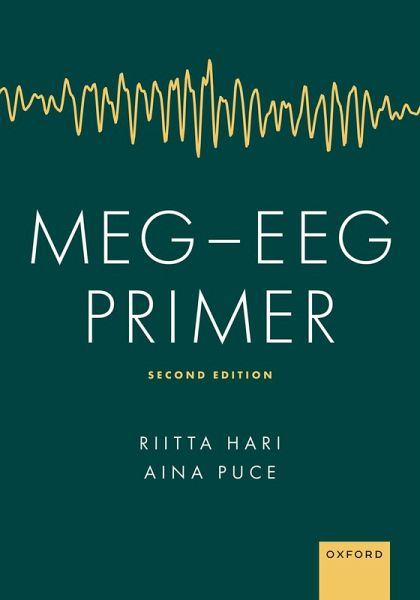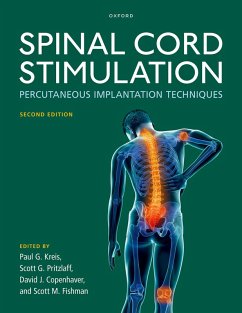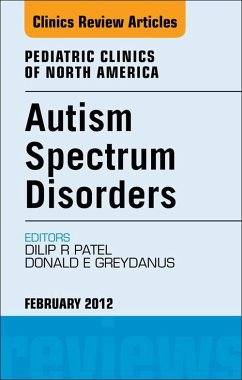
MEG - EEG Primer (eBook, ePUB)
Versandkostenfrei!
Sofort per Download lieferbar
31,95 €
inkl. MwSt.
Weitere Ausgaben:

PAYBACK Punkte
16 °P sammeln!
MEG-EEG Primer presents the basic A-to-Z of two non-invasive human electrophysiological methods, magnetoencephalography (MEG) and electroencephalography (EEG). These methods are used to study human brain dynamics, tracking the brain's responses to sensory, cognitive, and social stimuli. This book, now in its second edition, remains the only volume of its kind that discusses both MEG and EEG side-by-side, for an integrated understanding of brain function. In 22 chapters with almost two hundred color figures, the book covers the basic physical and physiological foundations of these two methods, ...
MEG-EEG Primer presents the basic A-to-Z of two non-invasive human electrophysiological methods, magnetoencephalography (MEG) and electroencephalography (EEG). These methods are used to study human brain dynamics, tracking the brain's responses to sensory, cognitive, and social stimuli. This book, now in its second edition, remains the only volume of its kind that discusses both MEG and EEG side-by-side, for an integrated understanding of brain function. In 22 chapters with almost two hundred color figures, the book covers the basic physical and physiological foundations of these two methods, the historical background and development of their implementation, instrumentation, recording techniques, data analysis, and interpretation. The new edition includes expanded text on MEG and EEG sensor types and amplifiers, artifacts, new analysis tools, open data repositories, and novel instrumentation. Due to new concerns from the COVID-19 pandemic, general infection control in MEG/EEG laboratories is also discussed. Interoception is introduced as an interesting emerging research field. Moreover, future developments in MEG and EEG are examined with respect to new and evolving technologies, and new applications for their use. Overall, MEG-EEG Primer puts into perspective the role of MEG and EEG in neuroscience research at large, and the future of our understanding of the dynamics of human brain function.
Dieser Download kann aus rechtlichen Gründen nur mit Rechnungsadresse in A, B, BG, CY, CZ, D, DK, EW, E, FIN, F, GR, HR, H, IRL, I, LT, L, LR, M, NL, PL, P, R, S, SLO, SK ausgeliefert werden.













